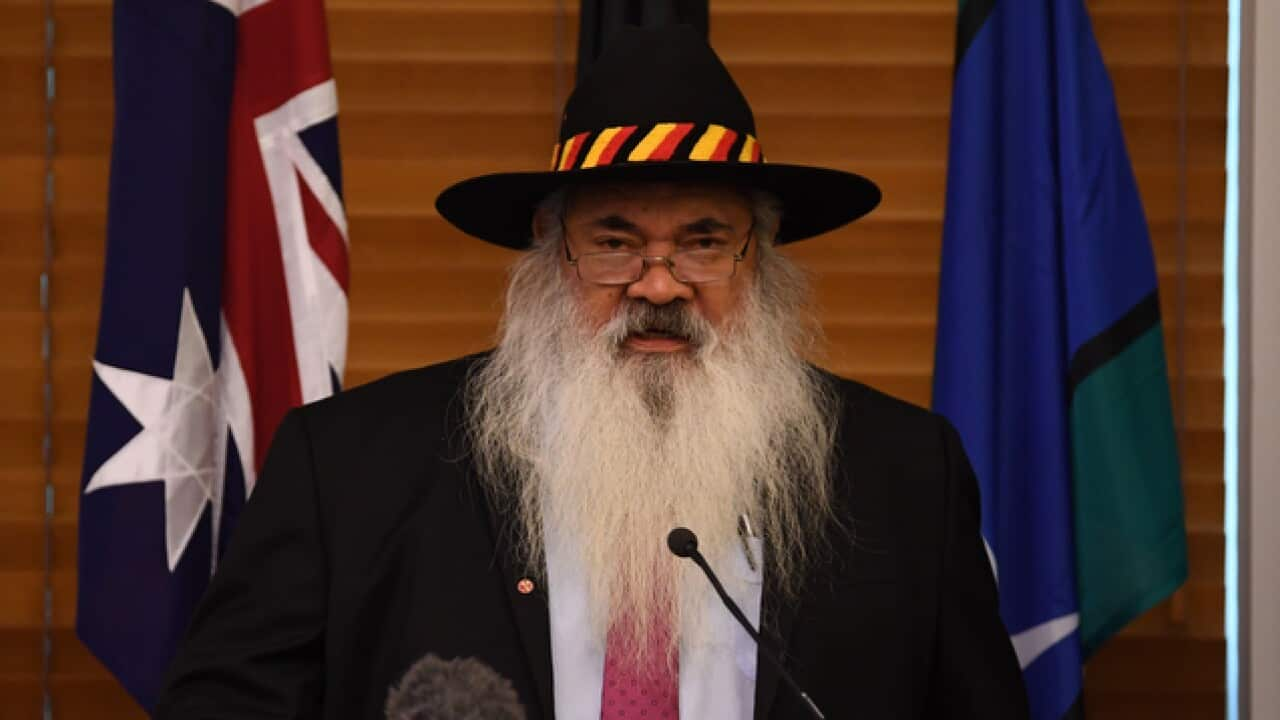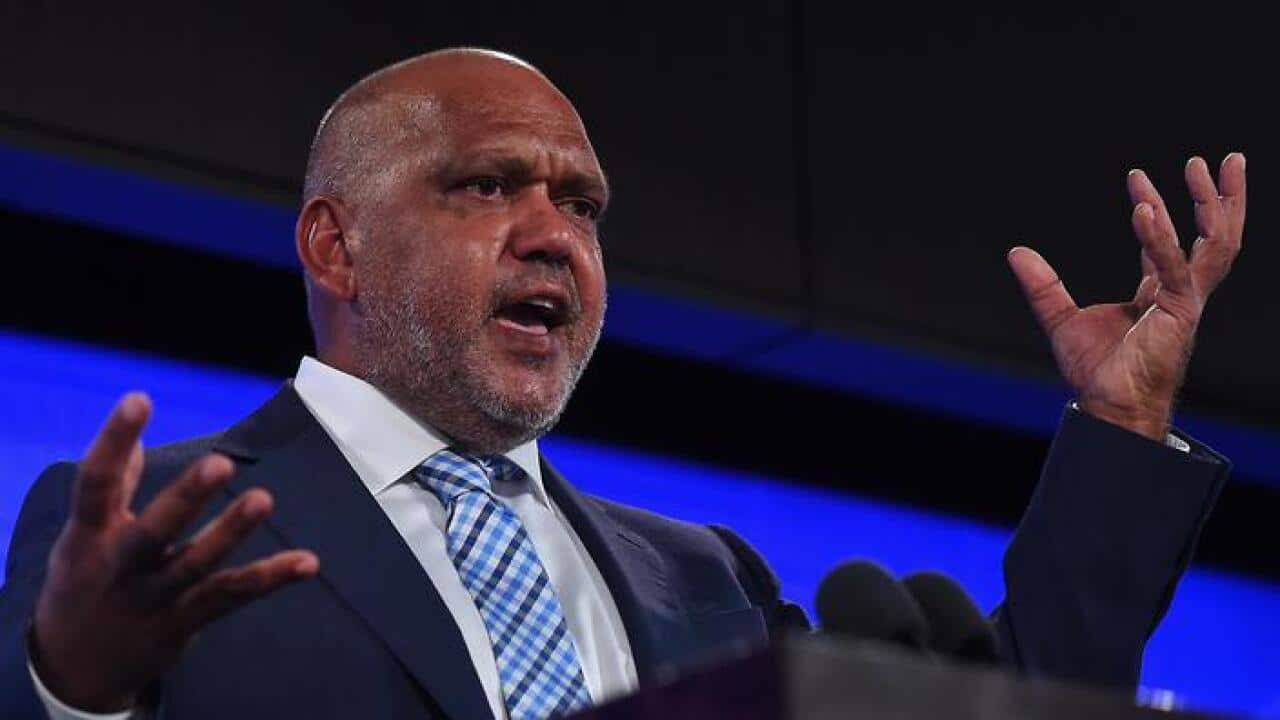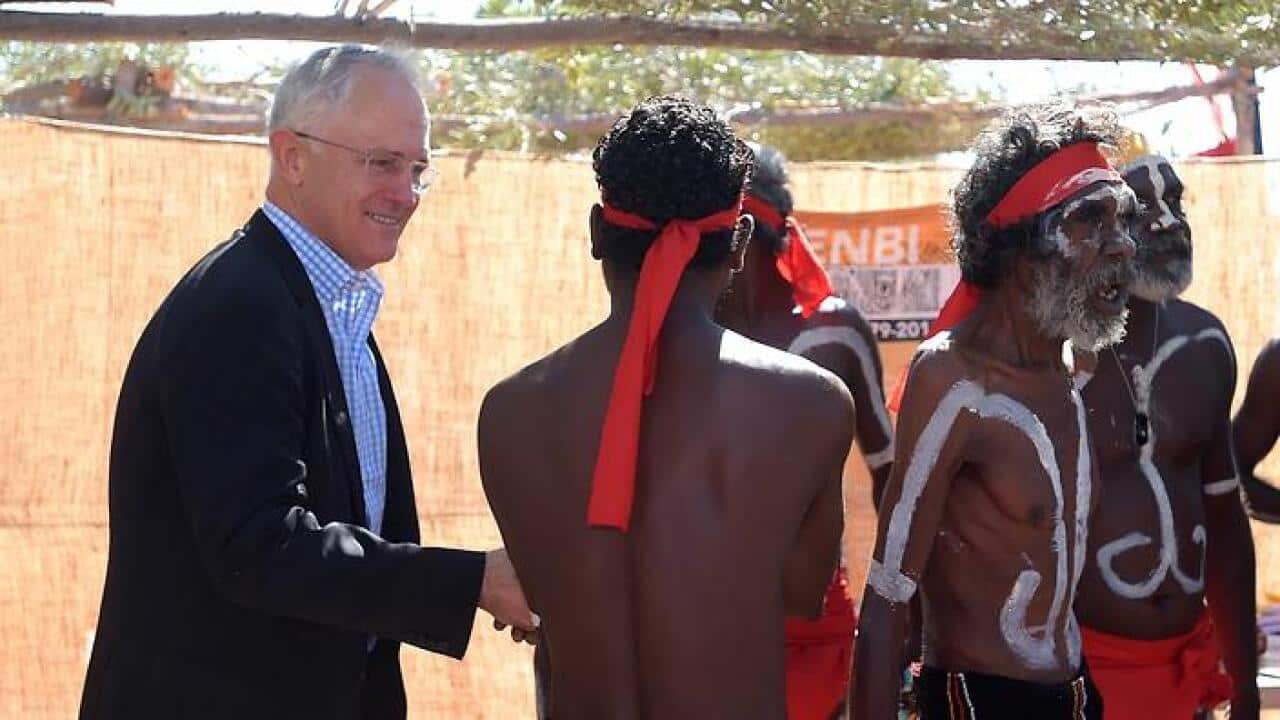The dust is yet to settle a week after the Australian government confirmed it rejected the Referendum Council’s bid of an Indigenous voice to Parliament as the way forward to represent First Peoples in the nation’s Constitution.
Professor Chris Sarra, Member of the Prime Minister’s Indigenous Advisory Council told NITV News on Friday that despite not being “surprised at all” by the government’s rejection of the Referendum Council’s proposal for an Indigenous voice to Parliament, the council did feel a “sense of frustration and exasperation”.
“The way it all shook down last week was unfortunate. The news emerged via a leak from the Cabinet room, all of which we’re told is quite unusual,” Mr Sarra explained.
“Yet even then, there was no element of surprise, and I think I’ve been on the public record as saying I was always sceptical about whether the notion of recognition in the Constitution was going to get up, so, there are a couple of things worth wondering about,” he added.
“For us, as blackfellas, I think we have to be just patient, and mindful of the things that are important to us: agreement-making, truth-telling, and a sense of voice.”
Mr Sarra is one of the voices that have emerged in the last week questioning why the Referendum Council decided to put the proposal forward, which some believe contradicted its own terms of reference.
“The Referendum Council was given a set of terms of reference which they completely ignored and came back with what I thought was a pretty bold kind of strategy, and that is to … put forward a proposition among others that we should go to a referendum asking for a sense of voice for First Peoples.
“Like others have said, I didn’t think that was ever going to fly, so it’s worth questioning that strategy,” he said.
‘We want a credible sense of voice that can’t be dismissed'
However, Mr Sarra did concede that there is a valid counter-argument that supports the Referendum Council’s actions.
“There’s the other issue, which I fully understand, and that the Referendum Council would argue, is that blackfellas around the country have been asking for more than just a minimal kind of recognition, and that is true. We’ve demanded as a people something towards the notion of agreement-making, truth-telling and a sense of voice,” he added.
“Blackfellas are saying, ‘we want a credible sense of voice that can’t be dismissed, we want agreement-making, we want truth-telling, and a lot of white fellas are getting an appetite and feeling good about just recognition in the Constitution.”
RELATED CONTENT

Law Council critical of referendum rejection
'A snowflake’s chance in hell'
When asked about revelations that Mr Turnbull had warned the Referendum Council in a private meeting in November last year not to go ahead with the proposal for a representative body because it would have a “snowflake’s chance in hell” of getting up, Mr Sarra said: “That raises some serious questions about the sense of political strategy going in, and the sense of political strategy going out”.
“If we had a feeling, and all of us did, that it would be rejected by the Prime Minister, who didn’t think that putting that request for a sense of voice to a referendum wasn’t going to fly, I have to say, personally, it’s hard to agree with that. It’s hard to see that would be successful at a referendum,” he questioned.
“I don’t know that coming out of that strategy, having been rejected, that it’s useful or clever to abuse the Prime Minister or anything like that. Not that I’m defending the Prime Minister, but for me, personally, I’d be guided by the Aboriginal leadership that has patience and integrity and wisdom, you know, the kind of leadership of people like Vincent Lingiari, who says, ‘let the starts keep on turning, we know how to wait’, rather than this kind of ‘sookiness’ and abusing people, it’s not helpful.
“For us, as blackfellas, I think we have to be just patient, and mindful of the things that are important to us: agreement-making, truth-telling, and a sense of voice.”
Mr Sarra said that after hearing about the rejection, the members of the Prime Minister’s Indigenous Advisory Council decided to re-band together.
“We just re-grouped and said, ‘if that’s what’s going to be, then what are we going to do?’, because we have been very clear on a couple of things, that as Council Members our reputations with [the] community are very important to us,” he said.
“We’ve got plenty of things to do, so if our advice is falling on deaf ears, then we’re going to raise questions on what we’d be doing in that space anyway. And secondly, the key elements, or the key parts of the conversation that we’ve advised the Prime Minister directly on, that is a ‘sense of voice’, agreement-making and truth-telling, those three issues existed well before the Uluru Statement came and they’re going to exist until they are engaged adequately by whoever is Prime Minister. So, they’re not going to go away and we have to accept that if that’s how it is, then, how do we progress this from here?” he explained.
“It’s a complex one, but these things here that we’ve demanded as blackfellas, they won’t go away until they’re adequately addressed, and I think in the leadership role that I’ve been afforded on the Advisory Council, and my colleagues on the Council, we recognize that and we’re committed to progressing the conversation until those things can be attended adequately, and we’ll continue to do what we can.”













